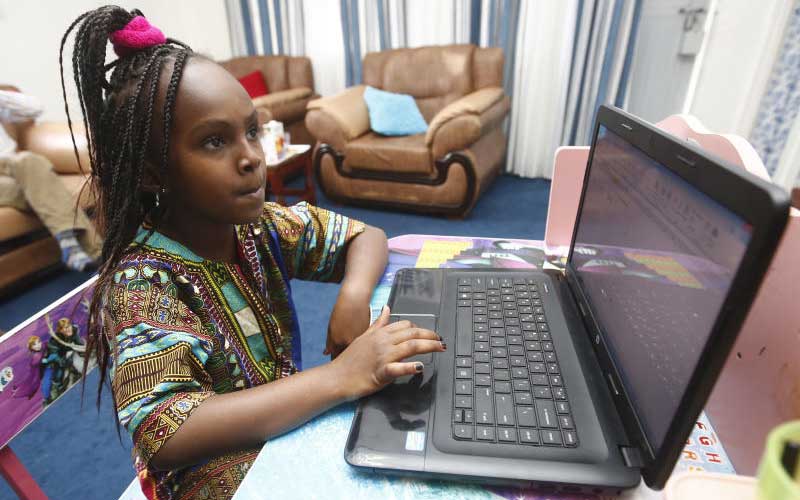×
The Standard e-Paper
Smart Minds Choose Us

Alawia Achieng, a pupil at Children in Freedom School, during an online lesson at her home in Lanet Nakuru county on April 20,2020. [Kipsang Joseph, Standard]
Kenya requires approximately Sh200 billion to put up 495,800 new classrooms in primary and secondary schools in readiness for re-opening in January next year.